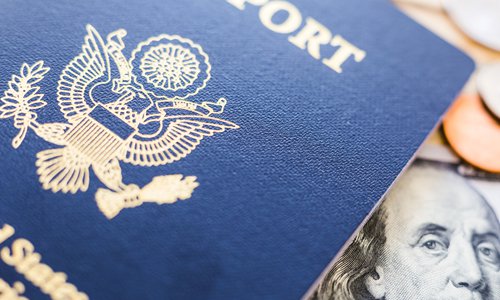HOME >> OPINION
US immigration policy just a political tool
By Sun Chenghao Source:Global Times Published: 2019/8/20 20:48:41

Photo: IC
US President Donald Trump's administration strengthened its immigration policy on August 12 by announcing a regulation that could dramatically decrease the number of legal immigrants allowed into the country. The current federal law requires people who seek green cards and legal status to prove they will not become a "public charge" or a burden, and the new rule, set to take effect on October 15, redefines what it means to be a "public charge."
"Legal immigrants who use one or more of these public benefits for more than 12 months in any 36-month period would be defined as a public charge, which would make it more difficult for them to secure citizenship," reported CNBC on Friday.
This is not the first time Trump is trying to stanch the flow of immigrants. Major shifts have taken place in US immigration policies since Trump took power. From banning nationals of eight countries from entering the US, canceling the Deferred Action for Childhood Arrivals to separating migrant children from their parents at the border, the Trump administration has implemented bold measures to deal with immigrants.
In Trump's view, pushing forward hardened immigration policies is a political battle which he must win. The so-called White Anglo-Saxon Protestant (WASP) in the country consists in most parts of Trump's core supporters. The main goal of this group is to defend a "WASP America." They voted for Trump in 2016 out of a fear that immigration represents a threat to their own American Dream. Trump captured the sentiments during the campaign and made changing immigration policy one of his major promises.
It is an irresistible temptation for Trump to play to his base with his escalating rhetoric and policies on immigration. A stable job approval rating shows that Trump's support remains unchanged.
Changing US immigration policy is a reflection of Trump's appraisal of national security challenges and threats. In the National Security Strategy released by the White House at the end of 2017, the US government listed "protect the homeland, the American people, and the American way of life" as one of the vital national interests. Trump and his supporters believe that those undocumented immigrants pose a threat to US national security.
The fundamental root and motivation of Trump and his supporters to alter policies are their fear and anxieties about the changing demographic structure in the US. According to a Brookings report on March 14, 2018, non-Hispanic whites constitute the majority of the US population, with about 62.6 percent of the population as of 2013, but the non-Hispanic white population will likely fall below 50 percent by 2045. "The nation will become 'minority white' in 2045," as the report put it. Trump's plan to reverse the trend is simple - to make America white again.
Curbing immigration might slow down demographic change, which is, however, impossible to be stopped. The number of non-Hispanic babies born in the US is higher than the number of white babies. In addition, the checks and balances embedded in US political system will restrain the executive branch if it steps too far. Immediately after the Trump administration's new "public charge" rule, 13 US states filed a lawsuit against the Department of Homeland Security on August 14, arguing the rule violates the Immigration and Nationality Act.
Trump's immigration policies will not make the US safe again. Instead, they would possibly create more chaos and divisions in the country. As US has entered the campaign season, both Republicans and Democrats will use immigration issues as a tool to bash each other.
The political infighting between the two parties will not easily cease. Mixed with racial issues, the immigration crisis has become the focus of the partisan battles. After the midterm elections, the House is controlled by much more diverse Democrats who hold a totally different stance on immigration policies from Trump. Under the pressure of the upcoming presidential elections, the room is squeezed for both parties to concede and the protracted war on immigration policies will be the new normal in US domestic politics.
The author is an assistant research fellow with the Institute of American Studies of the China Institutes of Contemporary International Relations. opinion@globaltimes.com.cn
Posted in: VIEWPOINT